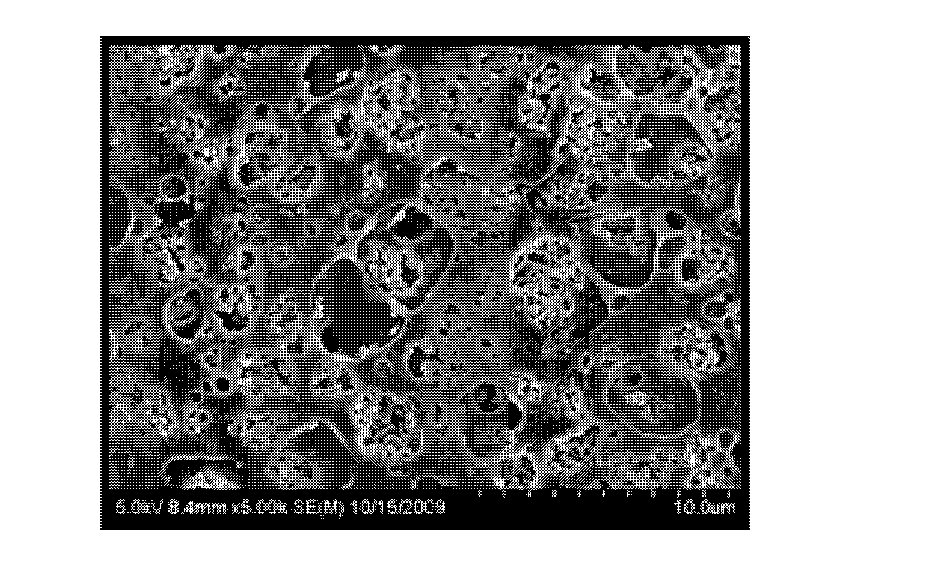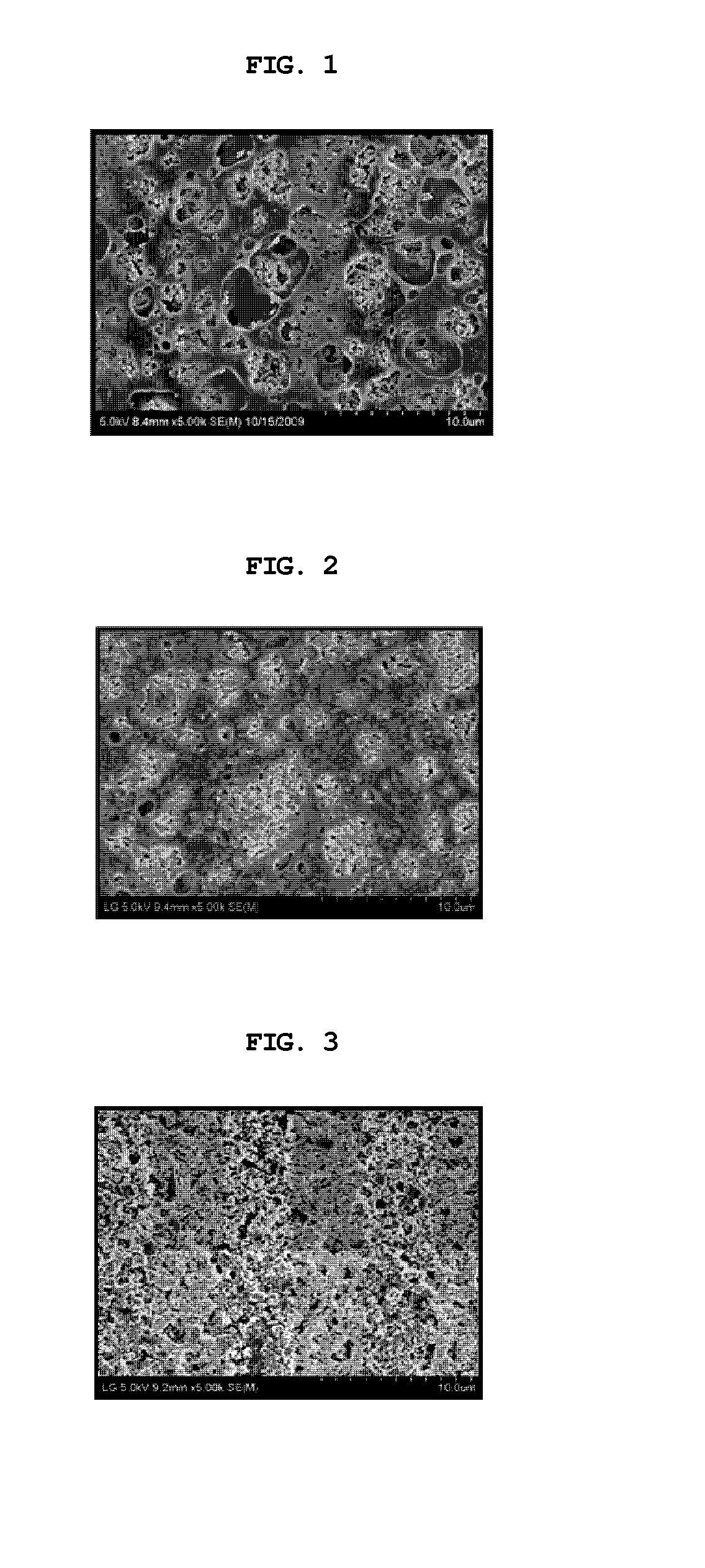Separator for electrochemical device and electrochemical device including the separator
a technology of electrochemical devices and separators, applied in the direction of cell components, sustainable manufacturing/processing, secondary cell details, etc., can solve the problems of thermal runaway, complex manufacturing, safety problems of ion batteries, etc., and achieve the effect of facilitating lamination, enhancing the bindability of the separator, and high bonding strength
- Summary
- Abstract
- Description
- Claims
- Application Information
AI Technical Summary
Benefits of technology
Problems solved by technology
Method used
Image
Examples
example 1
[0052]A polymer mixture of cyanoethylpullulan as a first binder polymer and polyvinylidene fluoride-co-hexafluoropropylene (PVdF-HFP) as a second binder polymer in a weight ratio of 2:10 was dissolved in acetone at 50° C. for at least about 12 hours to prepare a polymer solution. A barium titanate (BaTiO3) powder was added to the polymer solution until the weight ratio of the polymer mixture to the inorganic powder reached 10:90. The inorganic particles were crushed and dispersed using a ball mill for at least 12 hours to prepare a slurry. The inorganic particles of the slurry had an average particle diameter of 600 nm.
[0053]The slurry thus prepared was dip-coated on a 12 μm thick porous polyethylene terephthalate membrane (porosity 45%). The amount of the slurry loaded was adjusted to 12.5 g / m2.
[0054]Subsequently, distilled water as a non-solvent for the second binder polymer was sprayed on both surfaces of the slurry. The spray rate of the non-solvent was adjusted to 9 mL / min.
[005...
example 2
[0058]A separator was manufactured in the same manner as in Example 1, except that the kind of the non-solvent was changed to a mixture of distilled water and methanol (6:4 (v / v)).
[0059]FIG. 2 is a SEM image showing the porous coating layer of the separator. From the image of FIG. 2, it can be confirmed that a large number of the second binder polymer molecules were exposed to the surface of the porous coating layer.
[0060]The separator was found to have a Gurley value of 371.1 sec / 100 mL and a bonding strength of 9.42 gf / cm.
example 3
[0061]A separator was manufactured in the same manner as in Example 1, except that the kind of the first binder polymer was changed to polycyanoacrylate. The separator was found to have a Gurley value of 364.9 sec / 100 mL and a bonding strength of 13.10 gf / cm.
PUM
| Property | Measurement | Unit |
|---|---|---|
| thickness | aaaaa | aaaaa |
| particle diameter | aaaaa | aaaaa |
| dielectric constant | aaaaa | aaaaa |
Abstract
Description
Claims
Application Information
 Login to View More
Login to View More - R&D
- Intellectual Property
- Life Sciences
- Materials
- Tech Scout
- Unparalleled Data Quality
- Higher Quality Content
- 60% Fewer Hallucinations
Browse by: Latest US Patents, China's latest patents, Technical Efficacy Thesaurus, Application Domain, Technology Topic, Popular Technical Reports.
© 2025 PatSnap. All rights reserved.Legal|Privacy policy|Modern Slavery Act Transparency Statement|Sitemap|About US| Contact US: help@patsnap.com


